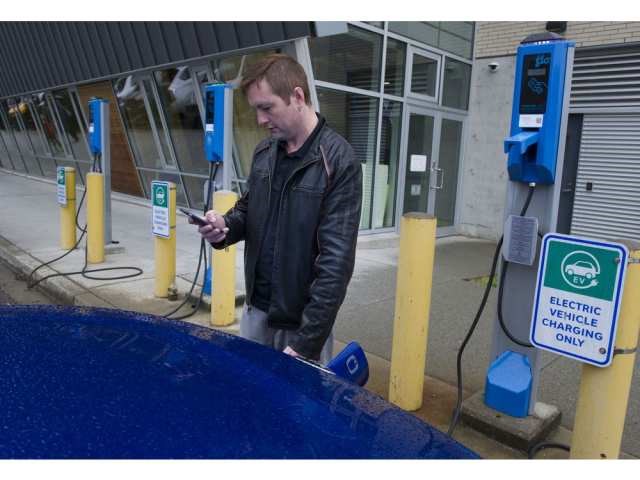Gas-powered drivers are fearful of charging availability and charging costs in the event they chose to buy an electric vehicle as their next auto, according to a sa���ʴ�ý Hydro report.
“There is the fear that there are not enough public charging stations,” said spokeswoman Susie Rieder. “And then there’s also the fear of the cost of your electricity bill rising at home.”
The report — Old habits drive hard: How British Columbians’ fuelling habits are driving misconceptions about EV charging — found 70 per cent of those surveyed thought there were not enough charging stations in sa���ʴ�ý (there are 1,700) and one quarter was concerned about how much they would pay in electricity.
To counter those fears, sa���ʴ�ý Hydro on Tuesday released statistics showing EV vehicle owners do most of their charging at home or at work and that the electrical cost of an average EV is one eighth the cost of gasoline for an average gas-powered car.
The report also found the majority of gas car owners fuelled up once a week.
“This approach to fuelling a gas-powered vehicle may be leading to a misconception that charging an EV at a public charging station must be done as frequently as getting gas,” Rieder said. “They think they will have to use the public chargers in the same way they use a gas station and it’s just not the case because the gas station is now at your home.”
Rieder said that most of the EV drivers polled mostly used at-home or at-work Level two charging stations.
There are three levels of charging for EV cars. Level one is what you get by plugging directly into a regular outlet and takes up to 12 hours to charge a Nissan Leaf, the most popular EV in sa���ʴ�ý Level two is a higher voltage that needs to be installed at home or work and costs between $700 to $2,000 for a single family home. It takes up to eight hours to charge.
Level 3 is the high-powered public charging stations that can fuel up a Nissan Leaf in under half an hour. sa���ʴ�ý Hydro has 60 of these 1,700 stations across the province.
The report found that charging a Nissan Leaf at home each day costs $20 a month (this is based on driving 20,000 km a year at current electricity prices) — compared to $170 a month to power a gas-powered Honda Civic for 20,000 km a year.
However, it should be noted that the cost of a new Nissan Leaf is $45,000 while the cost of a new Honda Civic is $19,000 – so that should be factored in when making a cost comparison assessment.
sa���ʴ�ý Hydro’s online survey polled 1,162 drivers in sa���ʴ�ý between July 29 and Aug. 5, 2019.



